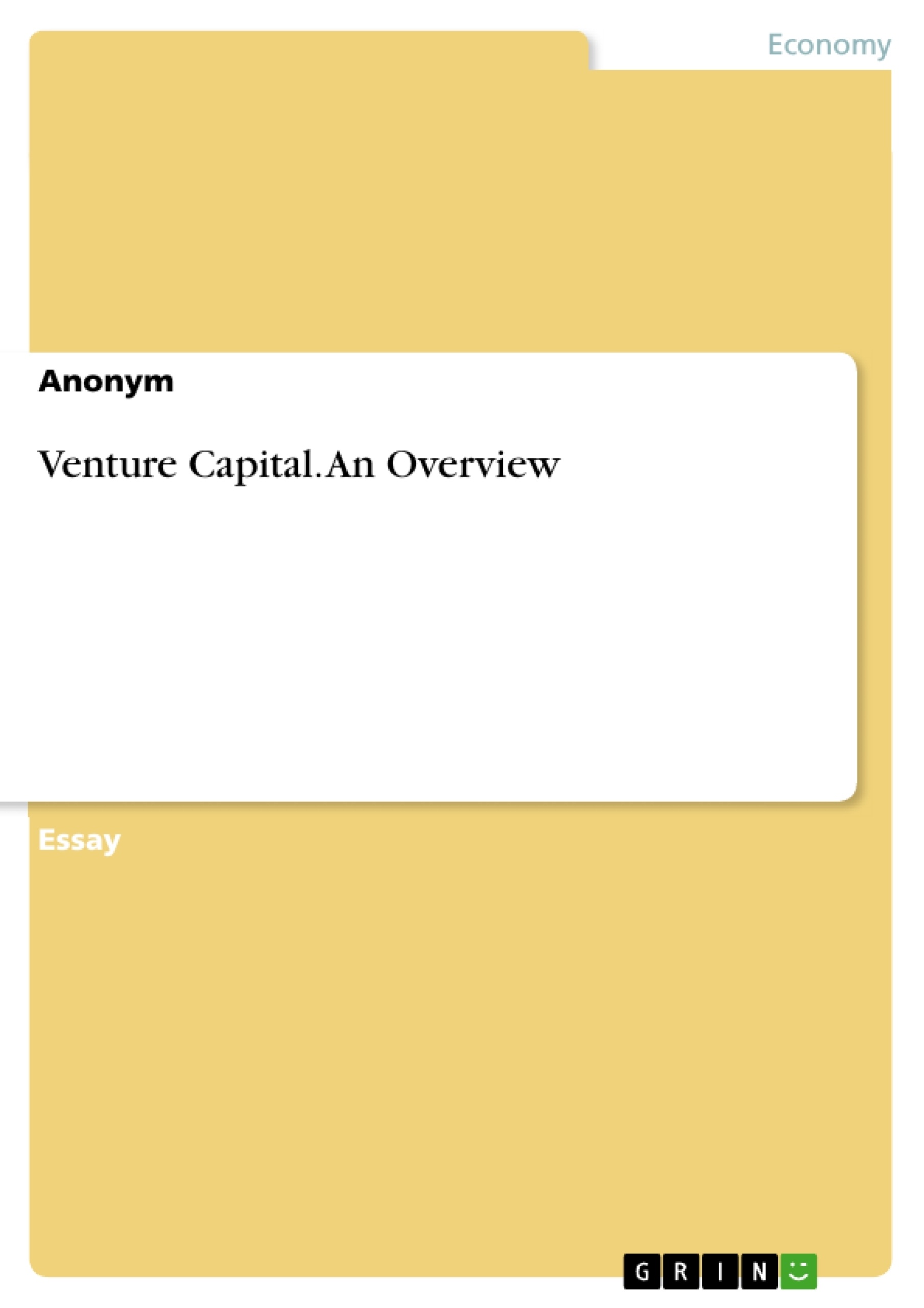Even though the reasoning to invest money into venture capital (VC) funds may vary according to the type of the investor, according to Bygrave et al. (1999), the main reasons include:
First, investors expect high returns on capital invested into VC funds. While a return of 30% p.a. was common, most investors nowadays are seeking for consistent 15-25% p.a., which is in line with comparing portfolio companies to quoted companies and adding a risk premium. Second, since VC target companies have a low correlation with quoted stocks, investors might aim for diversification effects for their overall portfolio. Third, as VC investments are highly illiquid, they provide a return premium. Moreover, the long-term horizon these investments especially fits investors, such as pension funds which have long-term liabilities. Fourth, beyond financial reasoning, investors might also consider VC due to relatively cheap access to the research and development of young companies, leading towards new ideas and products. However, since focus is shifting towards later-stage financing, this becomes less prevailing. Lastly, since young companies typically realise fast growth, they tend to create significant employment possibilities and thus represent a further investment objective of especially government-related bodies.
A further reason includes that many start-ups remain in the private market for many years, due to the large supply of private capital as well as the scrutiny of public markets. This phenomenon results in start-ups realising their high-growth phase while still being private. As a result, investors increasingly turn to the private VC market in order to benefit from these high-growth phases. Besides, investors in the VC market may aim to escape the high volatility inherent in public markets due to its very liquid nature.
Inhaltsverzeichnis (Table of Contents)
- THE REASONS FOR INVESTORS TO PUT THEIR MONEY INTO VENTURE CAPITAL
- THE TYPICAL INVESTORS' REQUIREMENTS TO INVEST IN A VC FUND
- THE STANDARD TERMS AND CONDITIONS IN THIS TYPE OF INVESTMENT
Zielsetzung und Themenschwerpunkte (Objectives and Key Themes)
This document explores the motivations behind investor decisions to allocate capital to venture capital (VC) funds, analyzes the key requirements and expectations of investors regarding VC fund investments, and delves into the standard terms and conditions governing these investments. It aims to provide a comprehensive understanding of the dynamics and intricacies of VC fund investment.
- Investor motivations for VC fund investments
- Key requirements for VC fund investments
- Standard terms and conditions in VC investments
- Structure and management of VC funds
- The role of fund size, commitment, and term in VC investments
Zusammenfassung der Kapitel (Chapter Summaries)
- Chapter 1: The Reasons for Investors to Put their Money into Venture Capital
This chapter delves into the diverse motivations that drive investors to invest in VC funds. It examines the pursuit of high returns on capital, the diversification benefits, and the risk premiums associated with VC investments. The chapter also explores the long-term horizon of VC investments, their potential for fostering innovation and job creation, and the appeal of accessing private markets with high growth potential. Additionally, it discusses how investors seek to mitigate the volatility inherent in public markets by venturing into the VC market. - Chapter 2: The Typical Investors' Requirements to Invest in a VC Fund
This chapter examines the crucial factors that investors consider when evaluating VC funds for investment. It highlights the importance of market analysis, investment strategy, management team capabilities, track record, fund structure, and terms and conditions. The chapter emphasizes the role of market growth potential, liquidity, exit strategies, investment specialization, deal sourcing, management approach, and alignment of financial interests in driving investors' decisions. - Chapter 3: The Standard Terms and Conditions in this Type of Investment
This chapter delves into the common terms and conditions governing VC investments, focusing on aspects such as fund size and commitment, closings, term of the fund, GP commitment and management fees, opt-outs, co-investment policies, drawdowns, and defaults. It examines the typical ranges for these factors, their implications for both investors and fund managers, and their impact on the overall structure and operation of VC funds.
Schlüsselwörter (Keywords)
Venture capital, investor motivations, VC fund investments, high returns, diversification, risk premium, market analysis, investment strategy, management team, track record, fund structure, terms and conditions, fund size, commitment, term, management fees, co-investment, drawdowns, defaults.
Frequently Asked Questions
What are the main reasons to invest in Venture Capital?
Investors primarily seek high returns (typically 15-25% p.a.), portfolio diversification, and access to innovative R&D in young companies. VC also offers a return premium for illiquidity.
Why is VC particularly suitable for pension funds?
VC investments have a long-term horizon, which aligns well with the long-term liabilities of institutional investors like pension funds.
What returns can an investor expect from a VC fund?
While historical returns were often around 30% p.a., modern investors typically aim for consistent returns in the range of 15% to 25% per year.
What are the standard terms and conditions in VC investments?
Key terms include fund size, commitment periods, management fees, drawdowns, and policies regarding co-investments and defaults.
How do investors evaluate a VC fund before investing?
Investors look at the management team's track record, the fund's investment strategy, market analysis, deal sourcing capabilities, and the alignment of financial interests.
- Citation du texte
- Anonym (Auteur), 2018, Venture Capital. An Overview, Munich, GRIN Verlag, https://www.grin.com/document/463828



